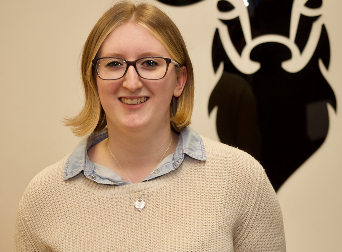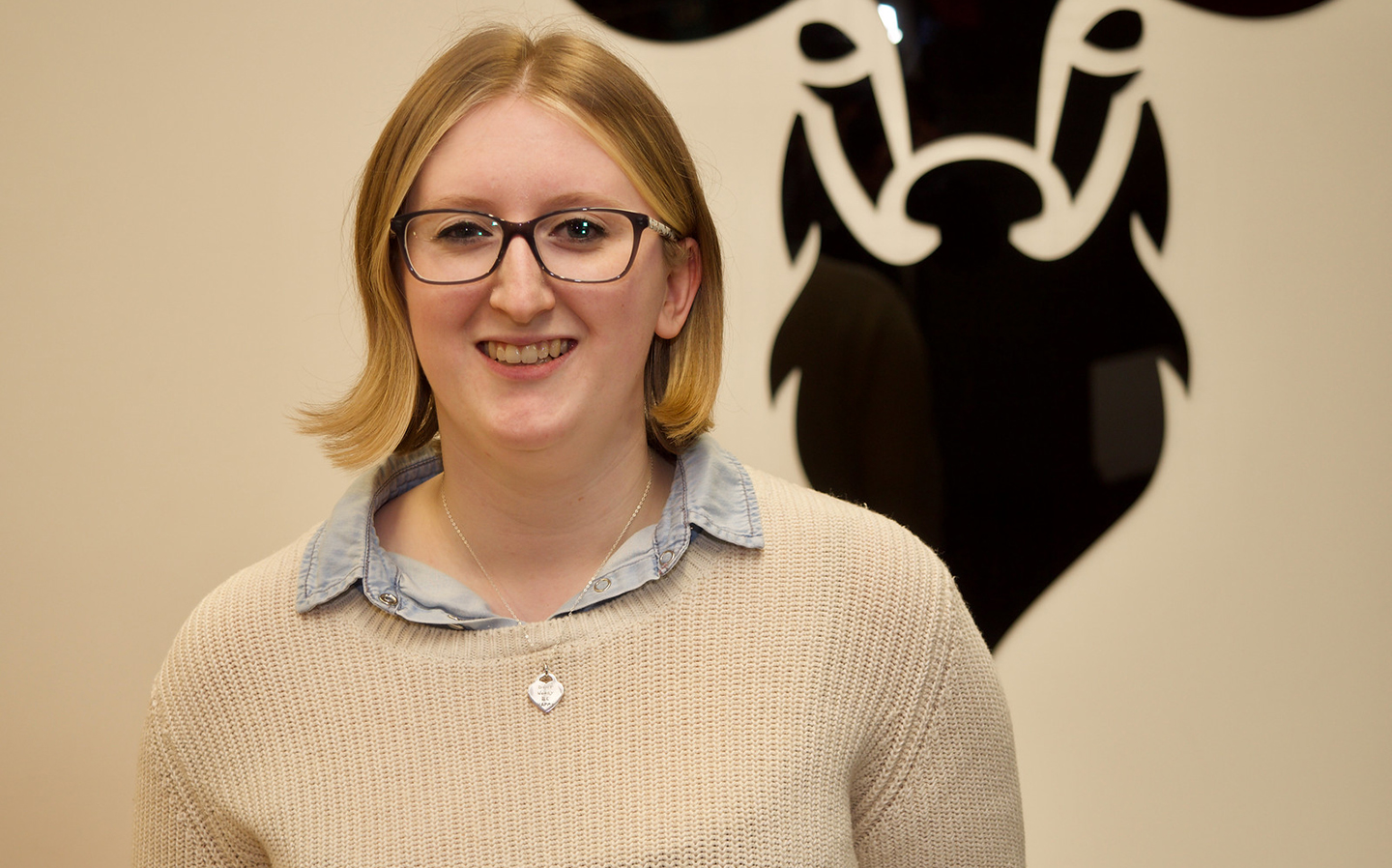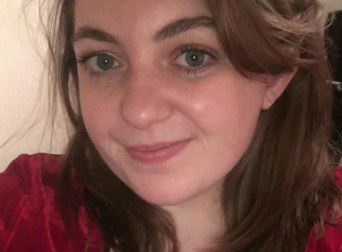Sign up for updates
Interested in studying at the University of Hertfordshire and want to sign up to our mailing list to learn more about our facilities, living in the UK and student life? Use the form below and our team will also keep you informed of key updates such as events near you, applications opening and more!
BA (Hons) English Literature and Creative Writing
Key information
-
Typical offer:
Entry requirements -
Fees: See below
Full details -
UCAS code: Q3W1
-
Institute code: H36
-
Study abroad option
-
Work placement option
Find out more
Why choose this course?
- English Literature has a 94.2% overall student positivity* score (National Student Survey, 2023)
- Understand writing from the inside out: Research, analyse and create
- Be taught by award-winning poets, fiction and non-fiction writers
We give you:
- An exciting and creative environment where you are taught by published writers
- The opportunity to hone your craft through supportive feedback from tutors and peers
- Modules which enhance your critical insight and enable you to put principle into practice
- A platform for publishing your work and a springboard for your future life as a published author
- An inspiring programme of visiting writers, workshops, readings and masterclasses
What's the course about?
Do you have a story to tell, or have you always wanted to be a writer? Perhaps you want to learn how to be a critical reader or gain a greater understanding of the craft of writing.
Studying English Literature and Creative Writing with us will help you find your voice, whether as a poet, playwright, novelist or scholar of literature.
This joint course combines the study of literature with the practice of creative writing. Studying literature will give you a greater understanding of how literary texts work, while this improved critical insight will help you put principles into practice in your own creative writing.
We offer a stimulating and supportive place in which to explore your ideas, hone your craft and understand literary texts. Our creative writing modules are taught by lecturers who are themselves award-winning practitioners and who bridge the gap between creative and academic approaches to literature. They include our poetry lecturer Wayne Holloway-Smith, winner of the Poetry Society’s Geoffrey Dearmer Prize and Seamus Heaney Prize nominee.
Over the three years you can choose specialist creative writing modules in poetry, creative non-fiction, drama, short story writing and prose fiction. Those specialisms are reflected in our English Literature modules, which range from children’s and young adult literature to film adaptations and work written in English from all over the world.
By the time you graduate, you will have a polished piece of work which has the potential for publication. Recent successes for our students include short stories published in Bandit and AnotherLenz magazines and poetry published in Rising and international magazine Poetry London.
In your first year, an underpinning core module, Becoming a Writer, will introduce you to genres and forms and examine the universalities of dialogue, plot and language. A second core module, Identity and Contemporary Writing, introduces you to some of the most exciting new writing as a model for your own work, while an optional module enables you to specialise in writing for the screen.
Work placement/study abroad option: Between your second and final year, you’ll have the option to study abroad or do a work placement for up to a year. Not only will this give you an amazing experience to talk about but will also give your CV a boost. If you’d rather go straight to your final year, that’s absolutely fine too.
The practicalities of getting published or working in literary publishing are explored in a creative writing module in your second year taught by a former editor of Granta, the renowned magazine of new writing. For your final year your particular creative interest can be channelled into a long piece of writing, which can be poetry, prose or drama.
Your main campus is College Lane
This is where the creative arts, science and health-related subjects are based. This means you’ll share the campus with future nurses, scientists, artists and more. You can use the common rooms to relax with friends, work out in the 24-hour gym or have a drink in our on-campus pub or cafes. We also have restaurants for you to eat in or grab something on the go. Our Learning Resources Centres are open 24/7, which means you can study whenever suits you best. Want to pop over to the other campus? You can take the free shuttle bus or walk there in just 15 minutes.
What will I study?
Creative Writing is a practice-based discipline, with the opportunity to experiment by working in different forms. You’ll be taught in small groups in workshop spaces and will receive feedback from your tutors and your peers as you share your ideas, learn to edit and refine your work and develop your presentation and performance skills.
Our two resident poetry research fellows, Mark Waldron and Rachel Long, offer masterclasses, workshops and give regular readings, adding to the vibrant and creative environment in which you’ll be working.
Check out our student blogs

Alumni Stories
Eleanor Pilcher
Meet Eleanor Pilcher who since graduating in 2016 has taken the publishing industry by storm. Eleanor currently works as a Marketing Manager at Avon, HarperCollins Publisher.
Read more stories Find out more about this course| Current job role | Marketing Manager |
|---|---|
| Year of graduation | 2016 |
| Course of study | BA (Hons) History and Creative Writing |

University experience and employability
Eleanor is a keen writer with great creative ambitions. During her degree she undertook a six-month internship at a literary agency in her final academic year. In 2016, shortly after her studies, Eleanor landed a placement at Penguin before getting a job in publishing recruitment. After developing her skills within the industry and amassing and impressive amount of knowledge and experience, Eleanor began her current role at HarperCollins Publishers.
Eleanor's degree encompassed a broad spectrum of critical, analytical and evaluative skills and helped shape her as a writer. Throughout her studies she had been writing a novel, which she submitted to literary agencies after being encouraged by her tutor to do so. It was Eleanor's passion for writing that uncovered her interest in working for a literary agency. Due to the fantastic lecturers on her course and the invaluable industry networks available to students, Eleanor managed to secure impressive opportunities in her chosen industry that have informed her career.
Sher recognises the impact the University has had on getting her to where she is today. 'For me the advice and feedback I received on both my History essays and Creative Writing finals was incredibly useful to my academic and professional development. I learnt to take criticism and to harness it and also write more because of it.'
Ambitions for the future
Eleanor has established herself in her chosen industry yet still has ambition to continue pursuing new goals. On her hopes for the future, she says: 'I hope to run a marketing department within a publishing company, possibly the one I'm at now. I hope to publish a novel and continue my freelance writing and public speaking on the side.'

Alumni Stories
April Wilson
Meet April Wilson, who used the diversity of her course to gain new experiences and learn. She is currently an Alumni Relations Coordinator at the University of Sussex.
Read more stories BA (Hons) English Literature with Film| Current job role | Alumni Relations Coordinator |
|---|---|
| Year of graduation | 2017 |
| Course of study | BA(Hons) English Literature with Film |
| MA Journalism with Media Communications |
University life and experience
April initially decided to go to the University of Hertfordshire due to our close proximity to London. She liked that it was easy to commute into the city for shopping and concerts, but that Hatfield wasn’t as expensive to live in!
While studying, April gained valuable experience which helped her develop essential skills for her current role which meant she was able to start ‘armed with the knowledge’ she needed.
However, the most useful thing she learnt from her postgraduate course was having confidence in herself and her ideas, especially when presenting. She credits this to ‘the support of my peers and lecturers who made me feel more confident in my abilities.'
She adds that her undergraduate degree helped her develop the writing and research skills which she applies daily to her current role and her approach to work.
Not only did April gain experience from her studies, but the extra-curricular activities she took part in also helped develop her skills. She says, ‘The writing and video editing experience I was able to gain from my time volunteering for societies at the University was also essential in helping me to have the skills that are valuable within my role.’
Future aspirations
April is also willing to try new experiences to help her gain valuable work experience in a variety of roles. She has previously, done everything from fundraising for charity to running my own online magazine.
In the future, April hopes to continues her studies and complete a PhD in Film Studies. She is particularly interested in looking at representation in films and how this is interpreted through social media.

